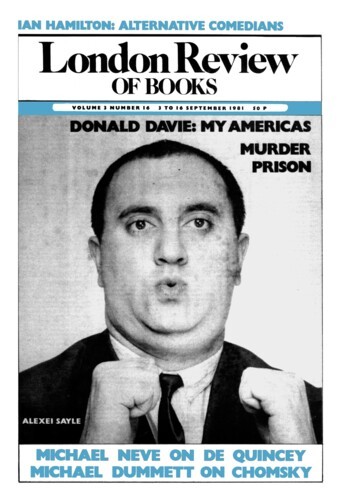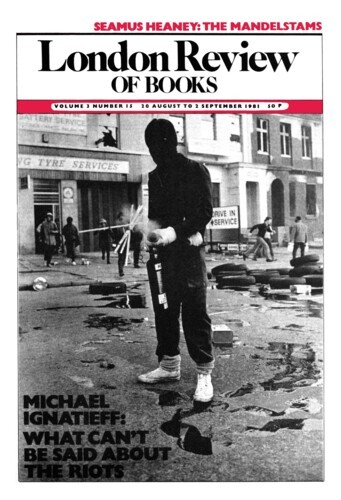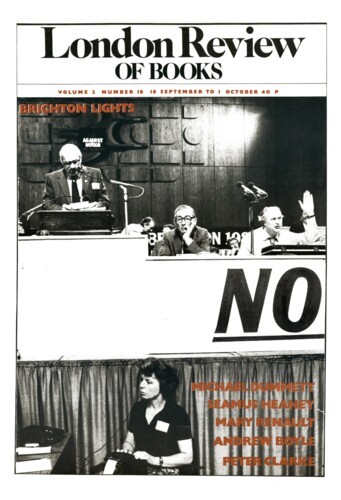Michael Dummett
Michael Dummett The Game of Tarot and Twelve Tarot Games were reviewed in the last issue of this paper. He is Wykeham Professor of Logic at the University of Oxford. His book, Frege: Philosophy of Language, was published in 1973.
Objections to Chomsky
Michael Dummett, 3 September 1981
The first few pages of this book declare a general attitude, wholly admirable in combining the firmest commitment to rationality with intellectual humility, that contrasts not only with the widespread irrationalism of our day but with the equally repellent scientism usually opposed to it. The book is divided into two parts, the first a revision of a lecture course given in 1978 and again in 1979, and the second consisting of two single lectures, both previously published. Part I presents a continuous argument, while the two chapters of Part II restate the same position in slightly different ways. Part I, in particular, is to a large extent polemical: Chomsky cites a great many criticisms of his work, and other expressions of views contrary to his own, and replies to them. The polemical mode of philosophical writing is not his forte.
It’s a riot
20 August 1981
Translating Frege
18 September 1980
Frege and Analytical Philosophy
Michael Dummett, 18 September 1980
In the course of 1936, Professor Heinrich Scholz of Münster completed the collection of Frege’s unpublished writings, of which he had charge, by obtaining from those, such as Russell and Husserl, whose letters to Frege were included in the collection, the letters Frege had written to them. On 25 March 1945 the US Air Force bombed Münster. I believe that the object was to destroy an important telephone exchange: a large part of the town was destroyed, but the telephone exchange was left intact. Among the things destroyed were all Frege’s manuscripts and the original letters to and from him; there survived typescripts of some of the papers and of part of the correspondence. Even these took a very long time to appear in print: the papers only in 1969, the correspondence not until 1976. An English translation of the former was brought out by Blackwell last year, a decade after the German version. Now we have the correspondence in English, only four years after the German volume, but 44 years after the collection was originally made.
Pieces about Michael Dummett in the LRB
Frege and his Rivals
Adam Morton, 19 August 1982
Philosophy is a bitchy subject. That is not to say that philosophers are nastier to each other in print than people in other subjects are, but that in philosophy the distinction between academic...
Tarot Triumph
Edmund Leach, 4 September 1980
During recent decades a variety of very distinguished academics have taken time off from their learned pursuits to write imitation Agatha Christie detective stories, so when I first learned that...
Read anywhere with the London Review of Books app, available now from the App Store for Apple devices, Google Play for Android devices and Amazon for your Kindle Fire.
Sign up to our newsletter
For highlights from the latest issue, our archive and the blog, as well as news, events and exclusive promotions.



